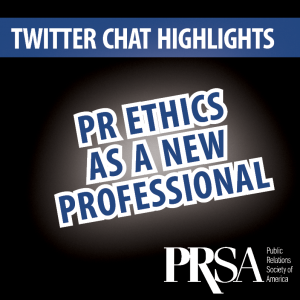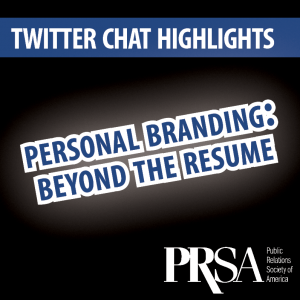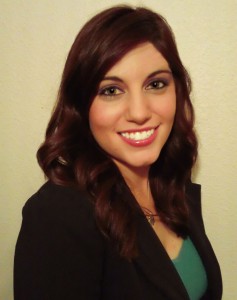 When I graduated with my bachelor’s degree in May 2012, I couldn’t wait to be done with college. Passionate about starting my career and impatient to begin my new agency job, I was ready to leave behind tests, lectures and projects for the real world.
When I graduated with my bachelor’s degree in May 2012, I couldn’t wait to be done with college. Passionate about starting my career and impatient to begin my new agency job, I was ready to leave behind tests, lectures and projects for the real world.
Exactly three years later, in May 2015, I’ll be in class again – this time, as a graduate student pursuing my master’s degree in integrated marketing communications.
Why grad school?
My decision to pursue a graduate degree was the direct result of a shift in my career path. After two years of working agency jobs – and an unexpected layoff after the loss of a client – I was unfulfilled, frustrated and ready for a change.
After much thought, I accepted a marketing position with a small liberal arts college where I focus on telling the stories of students, faculty and alumni who are doing amazing things. I assist in developing communications plans for community relations, development and alumni relations efforts. And I’m in an environment where education and the pursuit of lifelong learning are valued and respected.
Unlike the agency world, where experience is indispensable and graduate study isn’t a necessity, nearly all management and executive-level jobs in higher ed administration require an advanced degree. And, with more of their top communications officers reporting directly to college and university presidents than ever before, I’ve got my eye on the top spot and a plan to get there.
In addition, I hope to teach at the college level in the future – another position that nearly always requires at least a master’s degree.
For both of these reasons, grad school became a logical next step for me. But how do you know it’s right for you?
Is grad school the right move for me?
It’s a difficult decision to go back to school – one with personal, professional and financial implications. Before you sign up for a GRE prep class, here are some questions to ask yourself:
- Will earning a graduate degree further my career? Think about where you’d like to be in your career five, 10 or even 15 years down the road. Search job postings based on those goals and look at the qualifications. Is a master’s degree preferred or required? Talk to your professional mentors and explore LinkedIn profiles. Understanding exactly where you want to be in the future will help shape your plan for how to get there.
- What program fits my objectives? Part-time and online programs are flexible options for working professionals. MBA programs focus on business, while M.S. and M.A. programs can have professional and academic tracks. Since my bachelor’s degree is in public relations, I was looking for a graduate program that would complement my skill set while allowing me to focus on taking classes in areas where I was less versed. After narrowing down the choices, I reached out to alumni via LinkedIn and learned firsthand their experiences and how they were using their degrees.
- How much will it cost? Though grad school isn’t free, there are many ways to cover costs and make sure you’re not saddled with large debt in the process. Make sure to submit the FAFSA, which will help generate loan eligibility. Explore scholarships and fellowships. In addition, talk to your boss about going back to school. Many employers will look favorably upon an employee seeking education and may provide tuition assistance or reimbursement.
- Does the timing make sense? It’ll take me a little more than two years to finish my degree taking classes part time while I continue to work full time. That’s quite a commitment. Will you be able to devote the time necessary to be successful? Each person’s situation is different; take a look at personal and professional obligations and be realistic about what you can take on.
With public relations and marketing professionals working in a variety of industries, each with their own set of requirements and qualifications, grad school may not be the right move for everyone. My best advice? Do your research. Ask the right questions. Create a plan. It will soon become clear if (and when) graduate school will fit. And, if you end up back in class in 2015, I’ll save you a seat!
 Sarah Lack is an alumna of Kent State University’s School of Journalism and Mass Communication. She works in the communications department at Notre Dame College in South Euclid, Ohio, and is the communications coordinator for Girls on the Run of Greater Summit, a nonprofit organization serving Northeast Ohio. Connect with her on LinkedIn and Twitter (@sarah_lack).
Sarah Lack is an alumna of Kent State University’s School of Journalism and Mass Communication. She works in the communications department at Notre Dame College in South Euclid, Ohio, and is the communications coordinator for Girls on the Run of Greater Summit, a nonprofit organization serving Northeast Ohio. Connect with her on LinkedIn and Twitter (@sarah_lack).




 1. Work pro bono
1. Work pro bono Samantha Owens is a writer, hobbyist photographer, and grammar enthusiast based in Napa Valley, CA. She writes her own blog, contributes at a literary fiction book blog, and freelance writing work. Find out more about her at about.me/seowens or follow her on Twitter at
Samantha Owens is a writer, hobbyist photographer, and grammar enthusiast based in Napa Valley, CA. She writes her own blog, contributes at a literary fiction book blog, and freelance writing work. Find out more about her at about.me/seowens or follow her on Twitter at 
